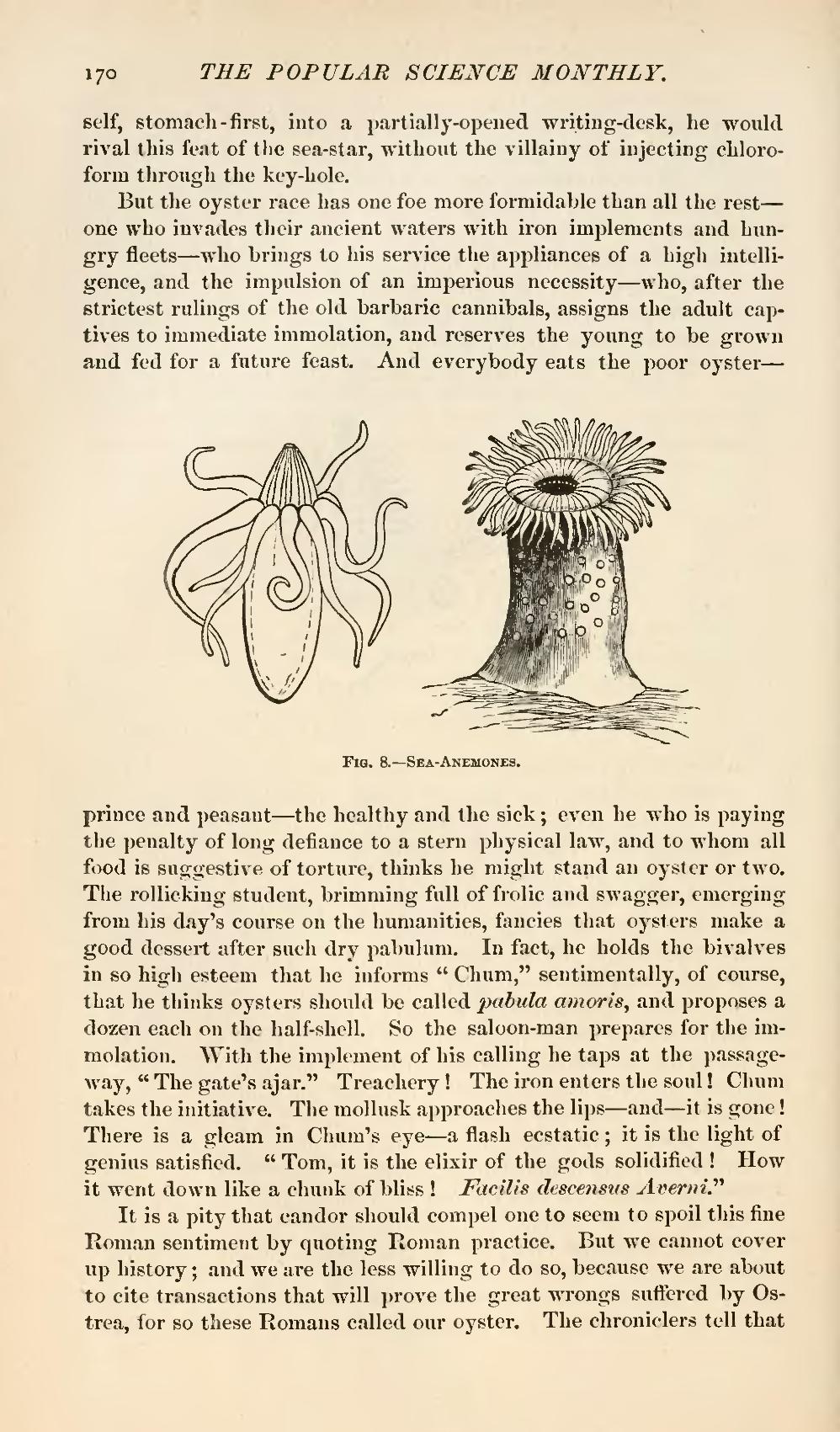self, stomach-first, into a partially-opened writing-desk, he would rival this feat of the sea-star, without the villainy of injecting chloroform through the key-hole.
But the oyster race has one foe more formidable than all the rest—one who invades their ancient waters with iron implements and hungry fleets—who brings to his service the appliances of a high intelligence, and the impulsion of an imperious necessity—who, after the strictest rulings of the old barbaric cannibals, assigns the adult captives to immediate immolation, and reserves the young to be grown and fed for a future feast. And everybody eats the poor oyster—

Fig. 8.—Sea-Anemones.
prince and peasant—the healthy and the sick; even he who is paying the penalty of long defiance to a stern physical law, and to whom all food is suggestive of torture, thinks he might stand an oyster or two. The rollicking student, brimming full of frolic and swagger, emerging from his day's course on the humanities, fancies that oysters make a good dessert after such dry pabulum. In fact, he holds the bivalves in so high esteem that he informs "Chum," sentimentally, of course, that he thinks oysters should be called pabula amoris, and proposes a dozen each on the half-shell. So the saloon-man prepares for the immolation. With the implement of his calling he taps at the passage-way, "The gate's ajar." Treachery! The iron enters the soul! Chum takes the initiative. The mollusk approaches the lips—and—it is gone! There is a gleam in Chum's eye—a flash ecstatic; it is the light of genius satisfied. "Tom, it is the elixir of the gods solidified! How it went down like a chunk of bliss! Facilis descensus Averni"
It is a pity that candor should compel one to seem to spoil this fine Roman sentiment by quoting Roman practice. But we cannot cover up history; and we are the less willing to do so, because we are about to cite transactions that will prove the great wrongs suffered by Ostrea, for so these Romans called our oyster. The chroniclers tell that
